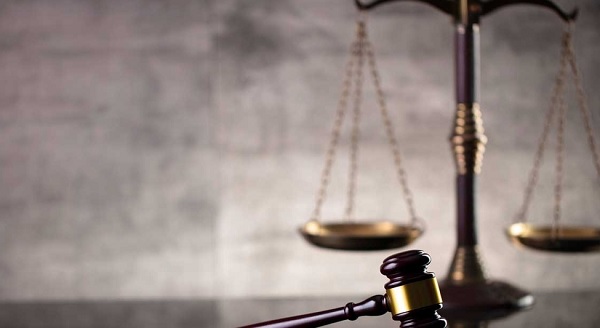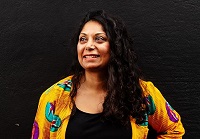
Investing in women lawyers counters the limited aid and philanthropy and pushes gender equality forward
COMMENT | Sabrina Mahtani | One of my mentors, human rights lawyer Yasmin Jusu-Sheriff of Sierra Leone, once told me: “Individuals can be broken, they can be silenced. But it is very hard to kill an organisation of women”.
Women lawyers across the African continent are proving that assertion by using the law to create a better world for women and girls. Examples are many: challenging child marriage in Tanzania, overturning a ban on pregnant girls in school in Sierra Leone, challenging discriminatory petty offences laws in Malawi and upholding rights for domestic workers in South Africa. When not in the court room, women legal experts are on the streets or in Parliaments, championing gender-just laws and policies.
Despite their impact, women in the legal profession continue to face multiple challenges, including being sexually harassed, dismissed, ignored, or ridiculed because of their gender. It is disgraceful that in 2023, more than a century after women were allowed to practice law, they are still dealing with these issues.
Women lawyers working for human rights also face such risks as threats and arbitrary arrests. Tanzanian lawyer Fatma Karume was permanently disbarred after her involvement in a constitutional challenge against the former president. Alice Nkom, a lawyer from Cameroon, is regularly harassed for her work defending the LGBTIQ community against threats of violence and detention.
Discrimination against women lawyers retards gender equity more broadly.
Women lawyers have spoken about the rampant discrimination they face. A lawyer from Swaziland noted that judges often give preferential treatment to male lawyers. Lawyers in Zimbabwe reported that they were given cases men did not want – the “soft law” cases concerning family law and wills. Lawyers have spoken out about being penalised professionally for being unable to participate in after-work events and networking because of family commitments. These examples are consistent with many conversations I have with friends and colleagues on a regular basis.
The discrimination that women lawyers face has damaging consequences, not just for individual lawyers but to the broader cause of advancing gender equality beyond the court room. A recent report by the International Development law Organisation has spotlighted the critical role women play in advancing justice outcomes for women and the numerous barriers they face, especially in advancing to more senior positions and leadership roles.
The law must be used as a catalyst for equal rights.
Advancing gender equality requires a multi-sectoral approach that recognises law as a catalyst for change. Despite gains that further gender justice in courtrooms across the world, funding for justice-focused initiatives remains a fraction of total aid and philanthropy. The much larger expenditures that go towards health and education will be more effective alongside increased investment in gender equality.
Total funding for justice-related projects between 2018 – 2020 was only 1.37 percent of total aid worldwide. This lack is compounded by limited funding for women’s rights organisations, particularly in poorer countries.
Ninety-nine per cent of gender-focused aid does not directly reach women’s rights organisations, while 94% of all foundation grants go to non-governmental organisations in the USA and Europe. The Legal Empowerment Fund, the first fund created in 2021 to support justice-led initiatives, received 4,800 applications from 153 countries in their first grant call but could fund only 49 grantees.
Waging Justice for Women
Investing in women lawyers is a key step in countering this reality and pushing gender equality forward. That is why, on this year’s International Women’s Day, the Clooney Foundation for Justice chose to launch the Waging Justice for Women Fellowship to provide funding, mentorship and training to bolster the next generation of women lawyers across Africa.
An initiative by Amal Clooney, a human rights lawyer who exemplifies the impact that lawyers can make in fighting for gender justice, the new fellowship will place ten early-career women lawyers in leading human rights organisations across Africa. It will provide them with an annual salary, as well as monthly online training sessions and in-person convenings to strengthen networks of feminist lawyers and movements.
Mentorship and role models are proven to have a positive effect in inspiring women to embark on or progress in legal careers. Annie Jiagge, the first female high court judge in the (British) Commonwealth and the first woman to head Ghana’s highest court, encouraged more women to enter the judiciary. The ATLAS Network – bringing together over 8000 women – provides mentorship, advice and support to women working in human rights, helping them to combat challenges and increase the number of women in senior positions.
Role models, such as Vera Chirwa, Malawi’s first woman lawyer who spent years on death row for her activism, and Frances Claudia Wright, Sierra Leone’s first woman lawyer who set up the first women-only law firm, paved the way for women like myself to enter the legal profession and to dream boldly about how we could use and shape the law to create a more equal world.
But across the world there is a global backsliding in women’s rights, endangering many of the protections hard won by women of previous generations. We need to do more – from increased funding and protection to programmes such as the Waging Justice for Women Fellowship – to ensure our two interrelated goals are realised. First, that women are equally represented in the justice sector, and, most importantly, that justice for women is prioritised, rather than seen as a luxury or secondary to other rights.
******

Sabrina Mahtani is a Zambian-British lawyer. She has over 15 years experience working on access to justice for women across Africa. She is a Senior Advisor to the Clooney Foundation for Justice’s Waging Justice for Women program. Twitter: @sabrina_mahtani
 The Independent Uganda: You get the Truth we Pay the Price
The Independent Uganda: You get the Truth we Pay the Price


